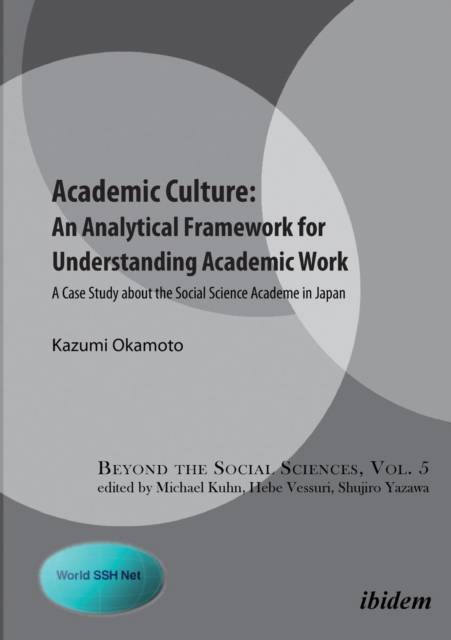
- Afhalen na 1 uur in een winkel met voorraad
- Gratis thuislevering in België vanaf € 30
- Ruim aanbod met 7 miljoen producten
- Afhalen na 1 uur in een winkel met voorraad
- Gratis thuislevering in België vanaf € 30
- Ruim aanbod met 7 miljoen producten
Zoeken
Academic Culture: An Analytical Framework for Understanding Academic Work
A Case Study about the Social Science Academe in Japan
Kazumi Okamoto
€ 41,95
+ 83 punten
Omschrijving
That we live in a world ruled and confused by cultural diversities has become common sense. It was the social sciences that gave birth to a new theoretical paradigm, the creation of cultural theories. Since then, social science theorizing applies to any social phenomenon across the world exploring cultural diversities in any social practice-except in regard to the social sciences and how they practice the creation of knowledge. How academics in the social sciences across the world create knowledge is no topic for cultural theories. Social science theorizing seemingly assumes that creating knowledge does not know such diversities.
Kazumi Okamoto presents the development of an analytical instrument that helps study 'academic culture', analyze 'academic practices' of how social sciences create and distribute knowledge, and the influence the 'academic environment' has on their knowledge productions. Applying this theoretical tool to the academe in Japan, she further presents a case study about how social scientists in Japan interpret academic practices and how they are affected by their academic environment. Studying the academic culture in the case of Japan, she reveals that not only the academic practices and the academic environment of the academe in Japan show much less diversities than cultural theories tend to presuppose, but that the assumption that creating social science knowledge does not know cultural diversities is an error as well.
Kazumi Okamoto presents the development of an analytical instrument that helps study 'academic culture', analyze 'academic practices' of how social sciences create and distribute knowledge, and the influence the 'academic environment' has on their knowledge productions. Applying this theoretical tool to the academe in Japan, she further presents a case study about how social scientists in Japan interpret academic practices and how they are affected by their academic environment. Studying the academic culture in the case of Japan, she reveals that not only the academic practices and the academic environment of the academe in Japan show much less diversities than cultural theories tend to presuppose, but that the assumption that creating social science knowledge does not know cultural diversities is an error as well.
Specificaties
Betrokkenen
- Auteur(s):
- Uitgeverij:
Inhoud
- Aantal bladzijden:
- 308
- Taal:
- Engels
- Reeks:
- Reeksnummer:
- nr. 5
Eigenschappen
- Productcode (EAN):
- 9783838209371
- Verschijningsdatum:
- 1/10/2016
- Uitvoering:
- Paperback
- Afmetingen:
- 160 mm x 211 mm
- Gewicht:
- 404 g

Alleen bij Standaard Boekhandel
+ 83 punten op je klantenkaart van Standaard Boekhandel
Beoordelingen
We publiceren alleen reviews die voldoen aan de voorwaarden voor reviews. Bekijk onze voorwaarden voor reviews.











